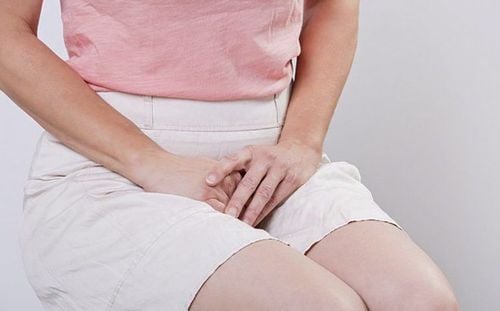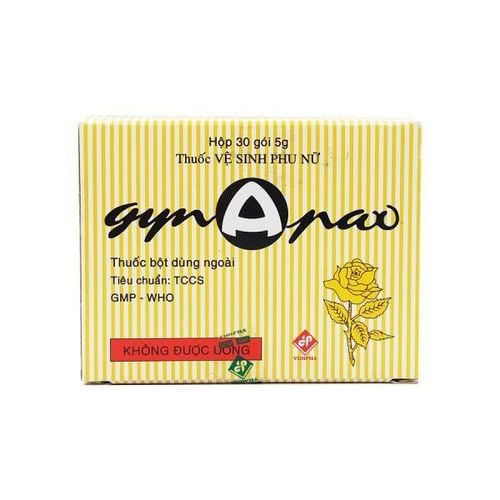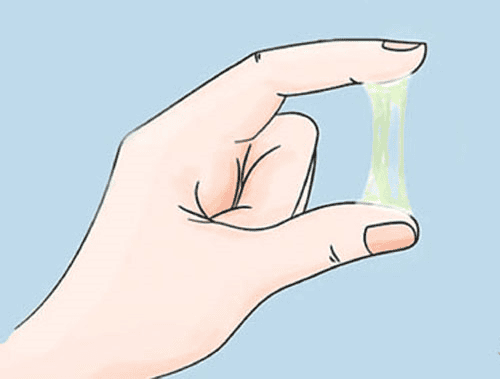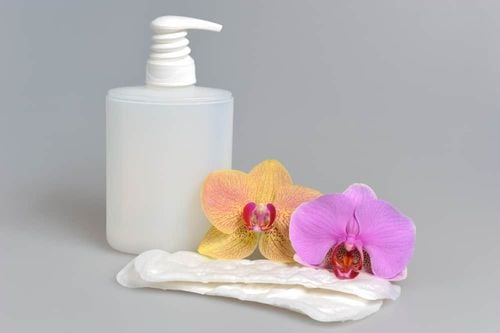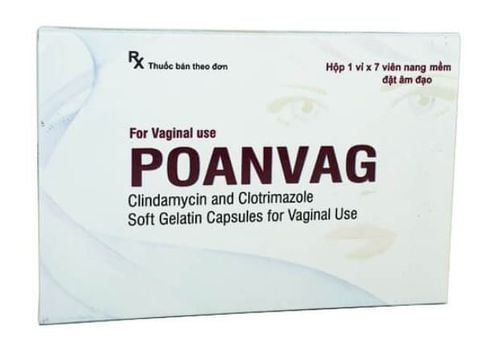This is an automatically translated article.
Itching of the vulva has serious and long-lasting effects on the female external genitalia. Although symptoms of this disease can appear at any time of the day, they are more pronounced at night. This causes a lot of problems and inconveniences for the patient.1. Vaginal itching phenomenon
The vulva is a woman's external genital area. The outer folds of the skin are called labia majora, and the inner folds are called labia minora. Vaginal itching can be painful for the genitals with symptoms: burning, stinging, soreness, throbbing and swelling.
If you see changes in the skin of the vulva or experience itching, burning or pain, see your gynecologist or health care professional for scientific advice.
Methods used to treat vulvovaginitis include self-care measures, medications, dietary changes, biofeedback training, physical therapy, and sexual counseling. or surgery.
2. Causes of vulvar itching
Here are six common causes of vulvar itching:
2.1 Candida yeast infection About 20% of women often have a candida infection without any symptoms. In the United States, yeast infections are the second most common vaginal infection after bacterial infections. Most women experience a yeast infection in their daily lives.
Symptoms of a yeast infection can include: itching in the vagina, especially the vulva, vaginal pain, pain during sex or urination,...
Yeast infection is a type disease is very common. Patients with vulvar itching often self-apply antifungal creams bought from the pharmacy without a prescription from a doctor. This won't help, especially if the cause of the itching isn't as obvious as sexually transmitted infections (STIs).
Therefore, when experiencing vulvar itching, you should see a doctor to receive scientific treatment. Your doctor can diagnose a yeast infection based on your symptoms and a pelvic exam. At the same time, the doctor may also take a sample of discharge from the patient's vulva to send to a laboratory to determine the type of fungus.
Treatment for yeast infections may include oral and topical medications. Depending on the condition of the disease, the time to take the medicine will vary.
2.2 Bacterial vulvovaginitis

Viêm âm hộ do vi khuẩn phổ biến hơn so với nhiễm trùng nấm men
Bacterial vulvovaginitis is more common than yeast infections. Women between the ages of 15 and 44 are most susceptible to bacterial vulvovaginitis. Infection occurs when too much bacteria build up in the vulva, especially in women who regularly have sex.
Bacterial vulvovaginitis has no obvious cause, but may present with the following symptoms: thin white or gray mucus, vaginal pain or itching, fishy odor, burning when vaginal discharge. urinating, vulvar itching...
Bacterial vulvovaginitis should be detected through examination or laboratory testing from samples taken from the vulva. If you have any of these symptoms, see your doctor for antibiotic treatment.
2.3 Sexually Transmitted Infections Sexually transmitted infections can cause a wide range of symptoms, including trichomoniasis and pubic lice. Most people infected with trichomoniasis have no symptoms at all, but some symptoms may include: vulvar and vaginal itching, an unpleasant vaginal odor, and unusual spots on the genitals. If you are diagnosed with trichomoniasis, your doctor will prescribe antibiotic treatment.
2.4 Allergens and Allergens Sometimes the cause of vulvar itching is something as simple as a skin irritant or allergy. Various chemicals can cause eczema, leading to inflammation and itching, such as: bath soaps, detergents, nylon underwear, certain clothing, vaginal hygiene products, spermicides or substances. lubricants, perfumes, medicines, baby wipes, latex condoms...
If you suddenly experience vaginal itching after switching to a new product, immediately stop using the product to see Are your symptoms improving? Because, that can be one of the causes of vaginal itching.
2.5 Lichen planus Lichen planus disease can affect different parts of the body, including the skin, hair, nails, and mucous membranes. When this condition occurs in the vagina, it causes white patches and painful sores. If they appear on the outside on the vulva, there will be symptoms such as itching.
The exact cause of the skin condition Lichen planus is unknown, but it can be influenced by a number of factors: flu vaccines, hepatitis C, taking nonsteroidal anti-inflammatory drugs (NSAIDs), and some type of medicine.
If a woman has the above symptoms, see a doctor. The doctor will make a diagnosis based on the patient's symptoms. If necessary, the patient may perform some tests and biopsies.
To relieve vaginal itching caused by lichen planus, your doctor may prescribe topical corticosteroids to address the abnormal immune response. Antihistamines may also be helpful in addressing the itch.
2.5 Lichen sclerosis Lichen sclerosis is a common chronic skin condition in postmenopausal women. It dries out the skin and can cause itching, pain, and even blistering. Although it can occur anywhere on the body, it is most commonly found on the genitals and anus. Other factors that can contribute to this condition include hormone imbalances, especially estrogen, and immune problems.
Lichen sclerosus may not cause any symptoms at first, but as it progresses, you may notice symptoms such as growing white spots on the skin, itching of the vulva, sexual intercourse. painful sex, anal itching or bleeding, pain when urinating.
The doctor may prescribe some of the following treatments for the patient such as topical steroids to help control pain or itching, steroid injections, oral medications.
3. Preventing itchy private area at night
While it is not possible to completely stop all vulvar itching , you can take some self-care for your vagina by:
Keep your vulva clean by rinsing with water warm and gently pat, do not rub; Clean before and after sex to reduce the risk of STIs. Regular check-ups and gynecological examinations; Vaginal itching isn't always a sign of a yeast infection, so it's important to see your doctor if you notice any itching that doesn't go away; The vulva is a sensitive area of skin, so it's important to take care of it appropriately. Wear loose-fitting clothes and use cotton underwear. Underwear should be washed and dried in a cool, dry place, away from moisture. Do not wear tight pants;
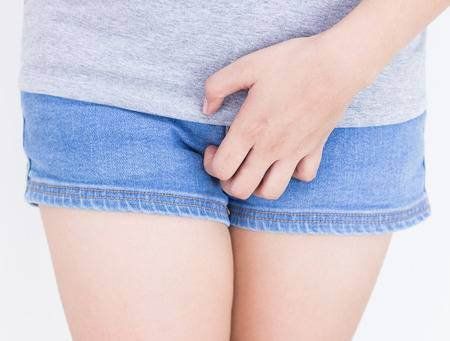
Âm hộ là một vùng da nhạy cảm, do đó, điều quan trọng là phải chăm sóc nó một cách thích hợp
Note about the toiletries, cosmetics, perfumes you use. Artificial scents and chemicals can be abrasive to the vaginal area and cause allergic reactions. Do not use scented soaps or scented toilet paper. Do not douche or use feminine sprays or talcum powder. Vaginal itching can be caused by a variety of causes, and it is often worse at night. If you notice persistent vaginal itching or other symptoms such as discharge or redness, seek medical attention immediately.
Women suffering from vulvar itching or experiencing any gynecological problems can go to Vinmec International General Hospital for examination and treatment. There is a team of gynecological specialists who are well-trained, experienced and professional; system of modern equipment, meeting international standards; Professional service quality, high efficiency in diagnosis and treatment. In particular, Vinmec always respects the privacy of patients to the maximum, especially when examining and treating sensitive diseases.
For detailed advice on bone tumors, please come directly to Vinmec health system or register online HERE.
Reference source: healthline.com; acog.org





